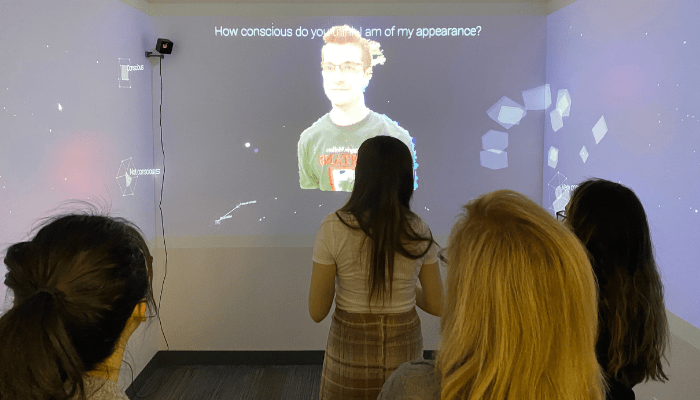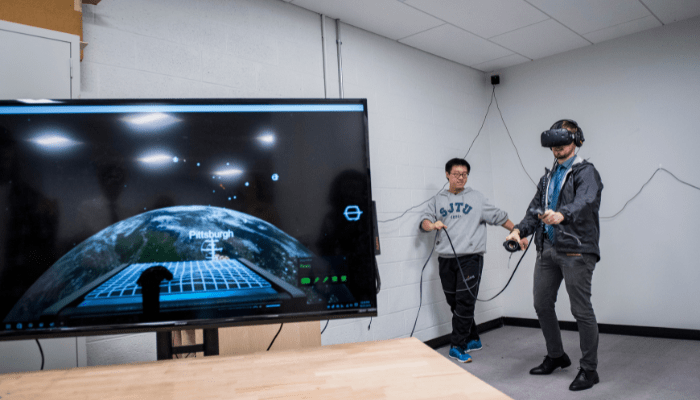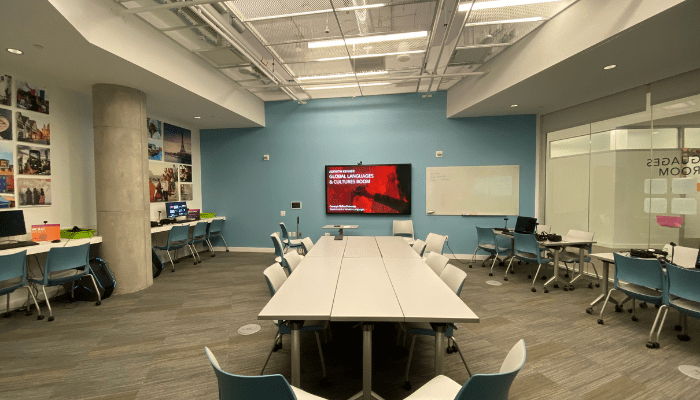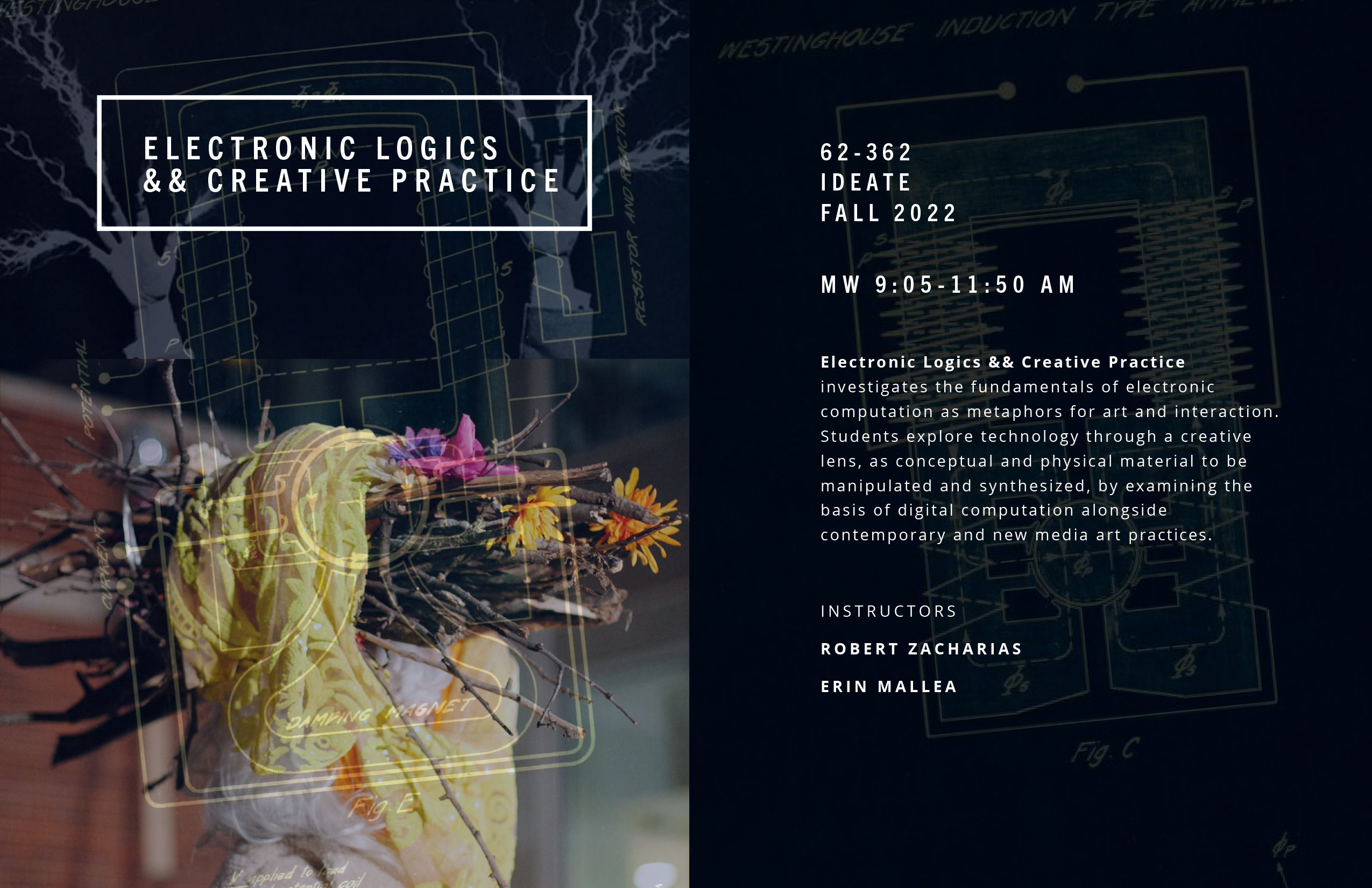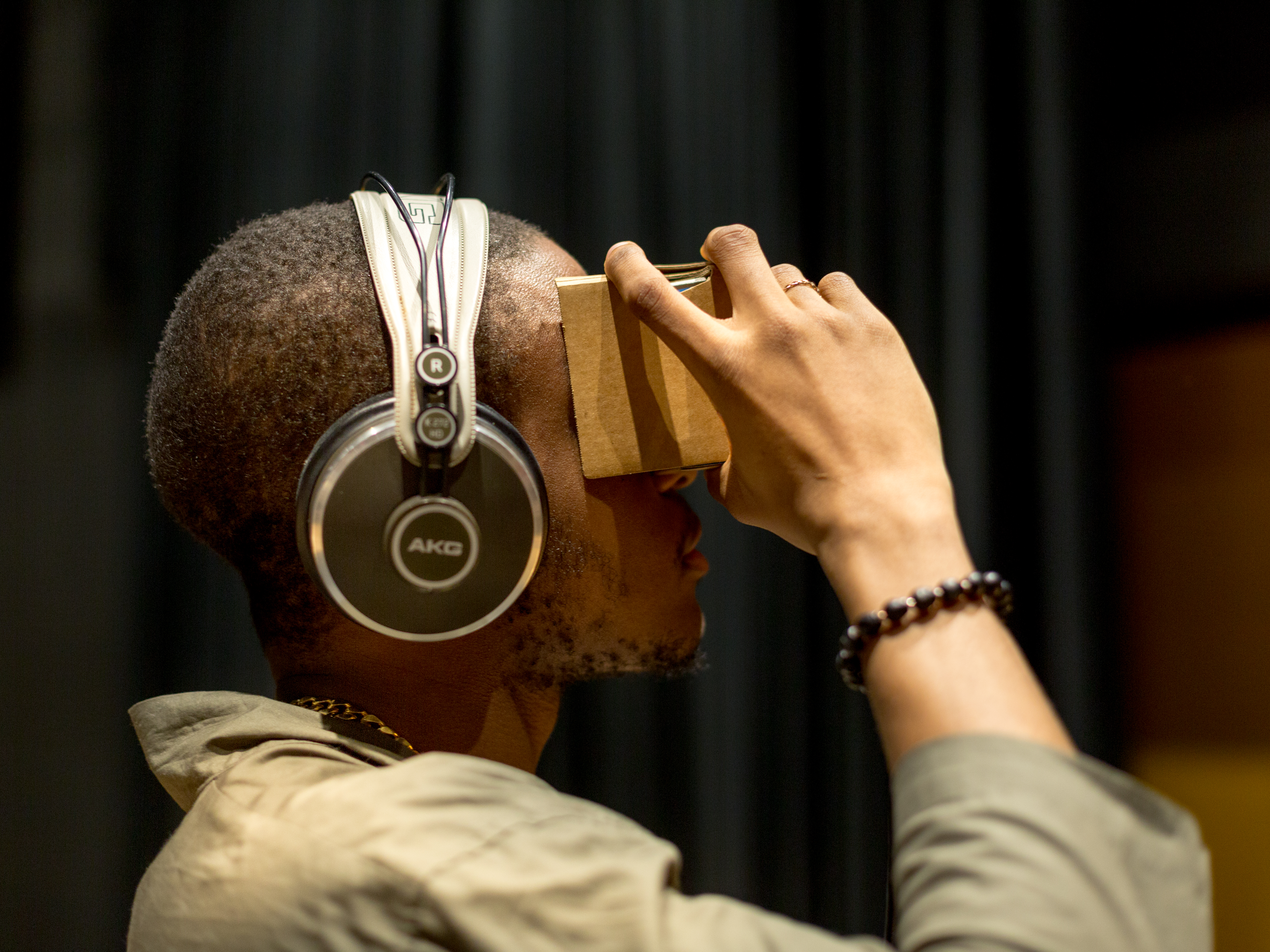
New IDeATe Minor in Immersive Technologies in Arts & Culture
The minor is designed to connect CMU students from diverse backgrounds and enable them to explore the expansive possibilities of immersive technologies
By KellyAnn Tsai
Media InquiriesImmersive and spatial media such as virtual reality, augmented reality, and digital projection offer innovative possibilities in the arts, entertainment, science, industry, and countless other domains. Technologies seeded 50 years ago are now entering commercial, political and cultural realms; and the potential for augmented and immersive experiences to further disrupt our current media ecosystem is tremendous.
As immersive experiences and augmented realities increasingly feature in work and leisure, young innovators are needed who can blend technological skills with creative imagination and critical humanistic practice. In response to this need, Carnegie Mellon University’s Department of Modern Languages and IDeATe, the Integrative Design, Arts, and Technology network, have collaborated to launch a new minor in Immersive Technologies in Arts & Culture.
Students in the Immersive Technologies in Arts & Culture minor will be hybrid technologists, media-makers, and storytellers who can create mediated experiences at the intersection of technology, design, and the humanities. They will be equipped with the social consciousness, global awareness, and cross-cultural skills needed to forge positive new paths for immersive media going into the future.
“We are excited to launch this new minor with the Department of Modern Languages, which brings together the humanities, the arts, and technology,” said Susan Finger, Associate Dean of IDeATE. “The minor is designed to connect CMU students from diverse backgrounds and enable them to explore the expansive possibilities of immersive technologies.”
Students in the minor will:
- Learn to construct and deconstruct immersive and augmented experiences with respect to the cultural, socio-emotional, and embodied aspects of human experience
- Develop the technical know-how and creative production skills to collaboratively author original narratives and prototype spatially mediated experiences
- Explore the narrative possibilities and technical affordances of the genre while attending to the aesthetic considerations, humanistic concerns, and design conventions defining this emerging mode of cultural production.
“This is a really exciting opportunity for students to design and create immersive experiences, and to have a voice in deciding the future of these emerging technologies,” said Stephan Caspar, Assistant Teaching Professor of Media Creation & Multi-Cultural Studies in the Department of Modern Languages. “They are going to be the ones that use VR and AR to tell stories and shape our culture, so it is essential that they start exploring and making sense of it now.”
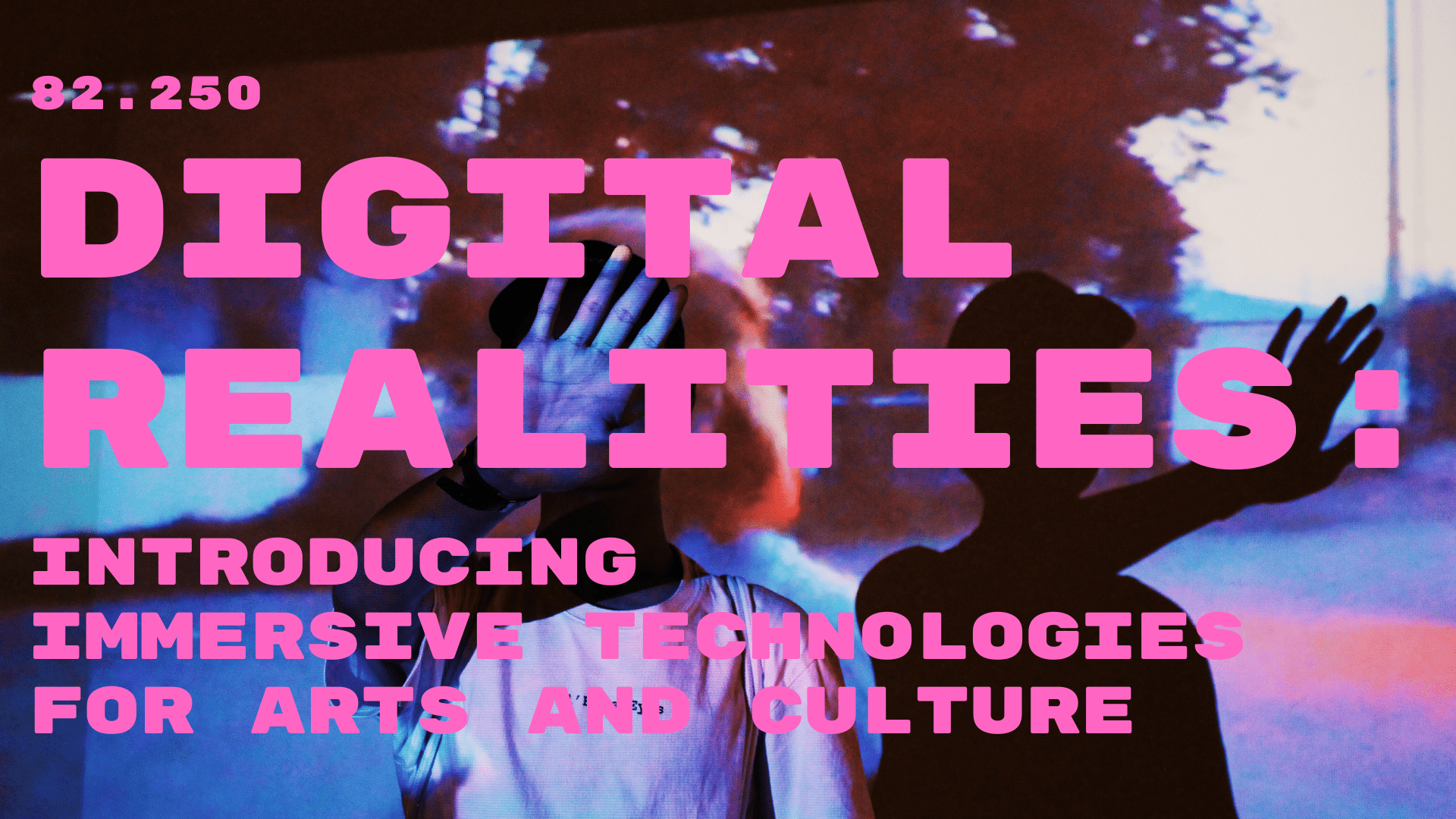 “Digital Realities: Introducing Immersive Technologies for Arts & Culture,” a core course for the Immersive Technologies in Arts & Culture minor, will be offered in the Fall 2022 semester. The course will be taught in the Askwith Kenner Global Languages & Cultures Room, a dedicated space for exploring language and culture through new immersive technologies managed by the Department for Modern Languages.
“Digital Realities: Introducing Immersive Technologies for Arts & Culture,” a core course for the Immersive Technologies in Arts & Culture minor, will be offered in the Fall 2022 semester. The course will be taught in the Askwith Kenner Global Languages & Cultures Room, a dedicated space for exploring language and culture through new immersive technologies managed by the Department for Modern Languages.
